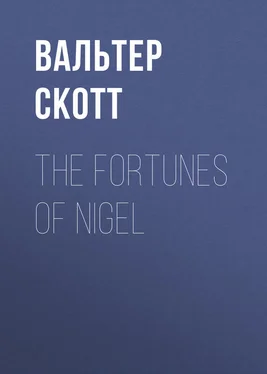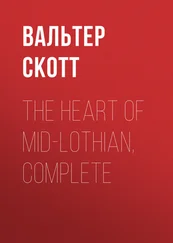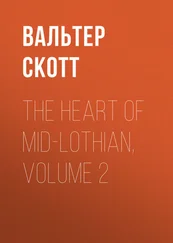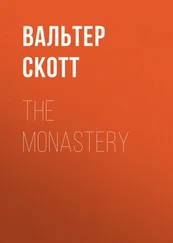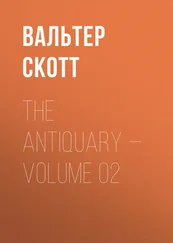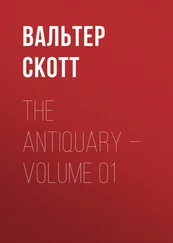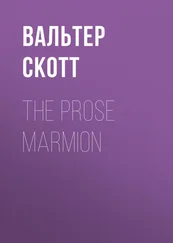Вальтер Скотт - The Fortunes of Nigel
Здесь есть возможность читать онлайн «Вальтер Скотт - The Fortunes of Nigel» — ознакомительный отрывок электронной книги совершенно бесплатно, а после прочтения отрывка купить полную версию. В некоторых случаях можно слушать аудио, скачать через торрент в формате fb2 и присутствует краткое содержание. Жанр: foreign_antique, foreign_prose, Альтернативная история, на английском языке. Описание произведения, (предисловие) а так же отзывы посетителей доступны на портале библиотеки ЛибКат.
- Название:The Fortunes of Nigel
- Автор:
- Жанр:
- Год:неизвестен
- ISBN:нет данных
- Рейтинг книги:4 / 5. Голосов: 1
-
Избранное:Добавить в избранное
- Отзывы:
-
Ваша оценка:
- 80
- 1
- 2
- 3
- 4
- 5
The Fortunes of Nigel: краткое содержание, описание и аннотация
Предлагаем к чтению аннотацию, описание, краткое содержание или предисловие (зависит от того, что написал сам автор книги «The Fortunes of Nigel»). Если вы не нашли необходимую информацию о книге — напишите в комментариях, мы постараемся отыскать её.
The Fortunes of Nigel — читать онлайн ознакомительный отрывок
Ниже представлен текст книги, разбитый по страницам. Система сохранения места последней прочитанной страницы, позволяет с удобством читать онлайн бесплатно книгу «The Fortunes of Nigel», без необходимости каждый раз заново искать на чём Вы остановились. Поставьте закладку, и сможете в любой момент перейти на страницу, на которой закончили чтение.
Интервал:
Закладка:
So thinking, he asked the young lord what was in the Proclamation which he still held folded in his hand; “for, having little time to spell at it,” said he, “your lordship well knows I ken nought about it but the grand blazon at the tap – the lion has gotten a claught of our auld Scottish shield now, but it was as weel upheld when it had a unicorn on ilk side of it.”
Lord Nigel read the Proclamation, and he coloured deep with shame and indignation as he read; for the purport was, to his injured feelings, like the pouring of ardent spirits upon a recent wound.
“What deil’s in the paper, my lord?” said Richie, unable to suppress his curiosity as he observed his master change colour; “I wadna ask such a thing, only the Proclamation is not a private thing, but is meant for a’ men’s hearing.”
“It is indeed meant for all men’s hearing,” replied Lord Nigel, “and it proclaims the shame of our country, and the ingratitude of our Prince.”
“Now the Lord preserve us! and to publish it in London, too!” ejaculated Moniplies.
“Hark ye, Richard,” said Nigel Olifaunt, “in this paper the Lords of the Council set forth, that, ‘in consideration of the resort of idle persons of low condition forth from his Majesty’s kingdom of Scotland to his English Court – filling the same with their suits and supplications, and dishonouring the royal presence with their base, poor, and beggarly persons, to the disgrace of their country in the estimation of the English; these are to prohibit the skippers, masters of vessels and others, in every part of Scotland, from bringing such miserable creatures up to Court under pain of fine and impisonment.”’
“I marle the skipper took us on board,” said Richie.
“Then you need not marvel how you are to get back again,” said Lord Nigel, “for here is a clause which says, that such idle suitors are to be transported back to Scotland at his Majesty’s expense, and punished for their audacity with stripes, stocking, or incarceration, according to their demerits – that is to say, I suppose, according to the degree of their poverty, for I see no other demerit specified.”
“This will scarcely,” said Richie, “square with our old proverb —
A King’s face
Should give grace —
But what says the paper farther, my lord?”
“O, only a small clause which especially concerns us, making some still heavier denunciations against those suitors who shall be so bold as to approach the Court, under pretext of seeking payment of old debts due to them by the king, which, the paper states, is, of all species of importunity, that which is most odious to his Majesty.”
“The king has neighbours in that matter,” said Richie; “but it is not every one that can shift off that sort of cattle so easily as he does.”
Their conversation was here interrupted by a knocking at the door. Olifaunt looked out at the window, and saw an elderly respectable person whom he knew not. Richie also peeped, and recognised, but, recognising, chose not to acknowledge, his friend of the preceding evening. Afraid that his share in the visit might be detected, he made his escape out of the apartment under pretext of going to his breakfast; and left their landlady the task of ushering Master George into Lord Nigel’s apartment, which she performed with much courtesy.
CHAPTER IV
Ay, sir, the clouted shoe hath oft times craft in’t,
As says the rustic proverb; and your citizen,
In’s grogram suit, gold chain, and well-black’d shoes,
Bears under his flat cap ofttimes a brain
Wiser than burns beneath the cap and feather,
Or seethes within the statesman’s velvet nightcap.
The young Scottish nobleman received the citizen with distant politeness, expressing that sort of reserve by which those of the higher ranks are sometimes willing to make a plebeian sensible that he is an intruder. But Master George seemed neither displeased nor disconcerted. He assumed the chair, which, in deference to his respectable appearance, Lord Nigel offered to him, and said, after a moment’s pause, during which he had looked attentively at the young man, with respect not unmingled with emotion – “You will forgive me for this rudeness, my lord; but I was endeavouring to trace in your youthful countenance the features of my good old lord, your excellent father.”
There was a moment’s pause ere young Glenvarloch replied, still with a reserved manner, – “I have been reckoned like my father, sir; and am happy to see any one that respects his memory. But the business which calls me to this city is of a hasty as well as a private nature, and – ”
“I understand the hint, my lord,” said Master George, “and would not be guilty of long detaining you from business, or more agreeable conversation. My errand is almost done when I have said that my name is George Heriot, warmly befriended, and introduced into the employment of the Royal Family of Scotland, more than twenty years since, by your excellent father; and that, learning from a follower of yours that your lordship was in this city in prosecution of some business of importance, it is my duty, – it is my pleasure, – to wait on the son of my respected patron; and, as I am somewhat known both at the Court, and in the city, to offer him such aid in the furthering of his affairs as my credit and experience may be able to afford.”
“I have no doubt of either, Master Heriot,” said Lord Nigel, “and I thank you heartily for the good-will with which you have placed them at a stranger’s disposal; but my business at Court is done and ended, and I intend to leave London and, indeed, the island, for foreign travel and military service. I may add, that the suddenness of my departure occasions my having little time at my disposal.”
Master Heriot did not take the hint, but sat fast, with an embarrassed countenance however, like one who had something to say that he knew not exactly how to make effectual. At length he said, with a dubious smile, “You are fortunate, my lord, in having so soon dispatched your business at Court. Your talking landlady informs me you have been but a fortnight in this city. It is usually months and years ere the Court and a suitor shake hands and part.”
“My business,” said Lord Nigel, with a brevity which was intended to stop further discussion, “was summarily dispatched.”
Still Master Heriot remained seated, and there was a cordial good-humour added to the reverence of his appearance, which rendered it impossible for Lord Nigel to be more explicit in requesting his absence.
“Your lordship has not yet had time,” said the citizen, still attempting to sustain the conversation, “to visit the places of amusement, – the playhouses, and other places to which youth resort. But I see in your lordship’s hand one of the new-invented plots of the piece, [Footnote: Meaning, probably, playbills.] which they hand about of late – May I ask what play?”
“Oh! a well-known piece,” said Lord Nigel, impatiently throwing down the Proclamation, which he had hitherto been twisting to and fro in his hand, – “an excellent and well-approved piece — A New Way to Pay Old Debts. ”
Master Heriot stooped down, saying, “Ah! my old acquaintance, Philip Massinger;” but, having opened the paper and seen the purport, he looked at Lord Nigel with surprise, saying, “I trust your lordship does not think this prohibition can extend either to your person or your claims?”
“I should scarce have thought so myself,” said the young nobleman; “but so it proves. His Majesty, to close this discourse at once, has been pleased to send me this Proclamation, in answer to a respectful Supplication for the repayment of large loans advanced by my father for the service of the State, in the king’s utmost emergencies.”
Читать дальшеИнтервал:
Закладка:
Похожие книги на «The Fortunes of Nigel»
Представляем Вашему вниманию похожие книги на «The Fortunes of Nigel» списком для выбора. Мы отобрали схожую по названию и смыслу литературу в надежде предоставить читателям больше вариантов отыскать новые, интересные, ещё непрочитанные произведения.
Обсуждение, отзывы о книге «The Fortunes of Nigel» и просто собственные мнения читателей. Оставьте ваши комментарии, напишите, что Вы думаете о произведении, его смысле или главных героях. Укажите что конкретно понравилось, а что нет, и почему Вы так считаете.
